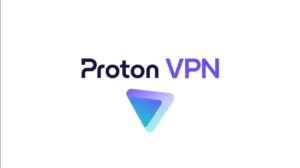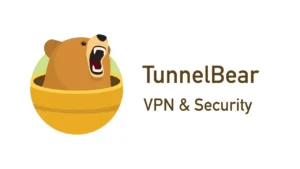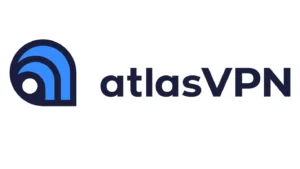Online privacy and security are becoming non-negotiable, with more people worried about data tracking, cyber threats, and restricted content. A VPN helps by encrypting your traffic, hiding your identity, and unlocking blocked sites.
In 2025, the demand for free VPNs has surged, especially for casual browsing, light streaming, or bypassing simple restrictions. They’re a significant starting point if you’re not ready to invest.
That said, free VPNs come with trade-offs, limited data, slower speeds, or fewer server options. For serious users, a paid plan is often worth the upgrade.
What to Look for in a Free VPN
Not all free VPNs are created equal, so it’s important to know what matters most:
- Security – Look for strong encryption (AES-256), a strict no-logs policy, and DNS leak protection to keep your activity private.
- Speed & Bandwidth – Many free VPNs cap data or slow speeds; pick one that offers enough for your needs.
- Server Availability – More servers in diverse locations mean better access to global content and less crowding.
- Device Compatibility – Ensure it works on all your devices, from Windows and macOS to mobile, Linux, or even smart TVs.
- Extra Features – Useful tools like a kill switch, ad-blocker, or split tunneling add protection and convenience.
Best Free VPNs Ranked for 2025
Not all free VPNs are created equal. Some prioritize speed, others offer stronger privacy, and a few stand out for unlimited usage. To help you pick the right one, we’ve ranked the top 5 free VPNs of 2025, breaking down their best features, who they’re ideal for, and what trade-offs you should know before installing.
ProtonVPN – Best for Unlimited Data

ProtonVPN is the go-to choice if you hate data limits. Unlike most free VPNs, it doesn’t cap your bandwidth, allowing you to browse, stream, and download without worrying about running out of data. It’s run by the same team behind ProtonMail, a service known for its strong privacy stance, so that you can trust it with your data.
What makes ProtonVPN especially appealing is its Swiss jurisdiction, which benefits from some of the world’s strongest privacy laws. Free users get access to three server locations (US, Netherlands, Japan), but even with limited options, you still enjoy high-grade AES-256 encryption, DNS leak protection, and a kill switch, all standard on both free and paid plans.
Another strength is that ProtonVPN doesn’t bombard free users with ads, nor does it sell your data (a major issue with many free VPNs). It’s also open-source and independently audited, which boosts transparency and credibility.
Pros:
- Truly unlimited free data
- Strong no-logs policy and Swiss jurisdiction (great for privacy)
- Clean, easy-to-use apps for desktop and mobile
- Supports advanced features like DNS leak protection
Cons:
- Only 3 free server locations (US, Netherlands, Japan)
- Speeds can drop significantly during peak hours
- The free plan doesn’t support torrenting
Best For: Heavy browsers and privacy-focused users who don’t want data limits.
Windscribe – Best for Generous Free Plan

Windscribe offers a rare balance of speed, features, and data for a free VPN. With 10GB of monthly data (expandable by confirming your email or completing simple promos) and access to servers in over 10 countries, it gives you more flexibility than most competitors.
What makes it stand out is the extra functionality packed into the free plan. You don’t just get AES-256 encryption and a kill switch. You also get an ad-blocker, tracker-blocker, and firewall, plus the option to use R.O.B.E.R.T., a tool that filters unwanted domains like ads or malware. These additions make it feel closer to a premium VPN experience.
Windscribe also supports a wide range of devices, including Windows, macOS, iOS, Android, Linux, and even browser extensions, so you can use it pretty much anywhere. While the 10GB cap can run out quickly if you stream or download often, for light browsing and day-to-day privacy, it’s one of the most well-rounded free VPNs you can get.
Pros:
- 10GB free data per month (can boost via promotions or referrals)
- Servers in multiple countries, not just the US
- Extra features like an ad-blocker, double hop, and firewall
- Strong privacy stance with minimal logging
Cons:
- 10GB can go quickly if you stream or download often
- Speeds aren’t as fast as premium plans
- Some advanced features are locked behind the paid version
Best For: Users who want flexibility and advanced tools without paying.
TunnelBear – Best for Beginners

TunnelBear wins on simplicity and design, making VPNs feel approachable instead of intimidating. Its playful bear-themed interface guides you through connecting with just one click, which is why it’s a favorite among beginners. The setup is quick, the apps are clean, and you don’t need any technical know-how to get started.
The free version, however, is very limited, with only 500MB of data per month. That’s enough for checking emails, light browsing, or securing your connection on public Wi-Fi, but it won’t stretch to streaming or regular use. You can unlock an extra 1GB by tweeting about the service, but even then, the cap is tight.
On the plus side, TunnelBear provides solid encryption, audited privacy practices, and apps for all major platforms. For users who value ease of use and security over heavy usage, it’s a great introduction to VPNs, just expect to outgrow the free plan quickly.
Pros:
- Extremely easy to use, great for first-time VPN users
- Fun, engaging design and branding
- Solid security with strong encryption
Cons:
- Only 500MB of free data per month (not enough for streaming)
- Limited advanced features compared to rivals
Best For: First-time VPN users who want something simple and trustworthy.
Hotspot Shield – Best for Fast Speeds

If speed is your top priority, Hotspot Shield is a strong pick. Its Catapult Hydra protocol maximizes performance, often making it one of the fastest free VPNs for browsing and streaming light content. The free plan includes 500MB of data per day, which adds up to about 15GB per month, a much more generous allowance than most free competitors.
That said, there are limitations. Free users can only connect to a single server in the United States, which restricts international access. You’ll also have to deal with ads, and advanced features like streaming support and multi-device coverage are locked behind the paid version.
Still, with its speed and daily data refresh, Hotspot Shield is a solid choice for casual use, quick browsing sessions, or protecting your connection on public Wi-Fi without worrying about running out of data too quickly.
Pros:
- Very fast speeds for streaming and browsing
- 500MB per day, refreshing daily
- Apps available across all major platforms
- Strong security protocols
Cons:
- Free plan limited to one server location (US)
- Shows ads on the free version
Best For: Casual users who need speed over server variety.
Atlas VPN – Best for Unlimited Connections

Atlas VPN stands out because it’s one of the few free VPNs that lets you connect unlimited devices at the same time. Whether you’re covering your laptop, phone, tablet, or sharing with family members, you don’t have to worry about hitting a device cap. This makes it especially appealing for households with multiple users or for people who switch between lots of gadgets.
On the free plan, you’ll get 5GB of data per month, which is enough for occasional browsing, email, or light streaming. Security features include solid encryption and a built-in kill switch to keep your data safe if the connection drops. The biggest drawback is the limited server selection available to free users, which can restrict speed and location choices.
Even with its smaller free server network, Atlas VPN is a strong pick for anyone who values flexibility and multi-device protection with no need to pay for a premium plan.
Pros:
- Unlimited simultaneous device connections
- User-friendly design with reliable security features
- Free plan includes a kill switch and AES-256 encryption
- Decent speeds for casual browsing
Cons:
- Only 5GB of free data per month
- Smaller server network for free users
Best For: Families or users with multiple devices looking for solid protection.
Comparison Table: Best Free VPNs (2025)
Still undecided on which VPN fits your needs best? A side-by-side breakdown makes the choice easier. Below you’ll find a quick comparison of the top free VPNs, focusing on the features that matter most:
| Service | Data Limit | Speed | Servers (Free) | Streaming Support | Devices Allowed | Notable Features |
| ProtonVPN | Unlimited | Moderate | 3 (US, NL, JP) | No | 1 | Strong no-logs policy, based in Switzerland |
| Windscribe | 10GB/month | Good | 10+ countries | Limited | Unlimited | Ad & tracker blocker, firewall, customizable |
| TunnelBear | 500MB/month (up to 1.5GB) | Average | 20+ countries | Limited | 5 | Fun interface, beginner-friendly |
| Hotspot Shield | 500MB/day (~15GB/month) | Very Fast | 1 (US only) | Limited | 1 | Catapult Hydra protocol, but shows ads |
| Atlas VPN | 5GB/month | Decent | Few (US & NL) | Limited | Unlimited | Unlimited devices, kill switch, strong encryption |
Pros & Cons of Using a Free VPN
Before choosing a free VPN, it’s important to weigh the benefits against the limitations so you know exactly what to expect.
Pros:
- Completely cost-free, making them ideal for beginners or casual users
- Great for light browsing, occasional streaming, or testing how VPNs work
- Simple setup, most free VPNs are user-friendly and quick to install
- It can provide a layer of online security and privacy without extra cost
Cons:
- Slower speeds due to overcrowded free servers
- Limited server locations compared to paid plans
- Strict data caps that restrict streaming and heavy use
- Ads or promotions may interrupt the experience
- Some free VPNs may log user data or sell information to third parties
When to Consider a Paid VPN
Free VPNs are great for everyday browsing, but sometimes upgrading to a paid option is the smarter move. Paid VPNs offer faster speeds, larger server networks, and advanced privacy tools that free plans just can’t match.
- Frequent Streaming: If you rely on Netflix, Hulu, Disney+, or other streaming platforms, only premium VPNs consistently bypass geo-blocks and provide smooth, buffer-free playback.
- Torrenting & P2P: For safe file sharing and downloads, paid VPNs provide stronger encryption, no bandwidth limits, and dedicated P2P servers.
- Business or Remote Work: When handling sensitive data, a paid VPN ensures compliance, enterprise-level security, and stable connections for video calls or file transfers.
- International Travel: Paid VPNs maintain large global networks, letting you access content securely and avoid censorship wherever you are.
- Advanced Privacy Needs: For users who value maximum anonymity, premium VPNs offer tools like multi-hop routing, obfuscation, and Tor over VPN.
- Better Speeds & Reliability: Free VPNs often throttle bandwidth. Paid plans guarantee faster, more reliable connections, especially important for gamers and heavy users.
- Customer Support: Paid services provide 24/7 live chat or email support, so you’re not left troubleshooting on your own.
FAQs About Free VPNs
Free VPNs can be helpful, but they often raise questions about safety, speed, and reliability. Here are some of the most common questions people ask before downloading one.
Are Free VPNs Safe to Use?
Some are safe if they come from trusted providers, but many shady free VPNs make money by selling user data. Always look for services with a clear no-logs policy and independent security audits.
Can Free VPNs Unblock Netflix or Hulu?
Usually not. Paid VPNs are much better at unblocking streaming platforms. A few free ones may work occasionally, but they’re rarely reliable.
Do Free VPNs Sell My Data?
Many low-quality providers do, since that’s how they stay free. Reputable services like ProtonVPN and Windscribe do not sell user data. For broader best practices on network access security, including the inherent vulnerabilities of traditional VPN solutions, consult the expert guidance from the Cybersecurity and Infrastructure Security Agency (CISA).
Will a Free VPN Slow Down My Internet Speed?
Yes, because free servers are often overcrowded. Paid VPNs usually guarantee faster speeds and more server options.
Can I Torrent Safely With a Free VPN?
Some free VPNs allow P2P, but most limit speeds or restrict torrenting to certain servers. Paid VPNs are far more reliable for file sharing.
Do Free VPNs Work On Mobile Devices?
Yes. Many free VPNs have iOS and Android apps. Popular options like ProtonVPN, Windscribe, and Atlas VPN work smoothly on mobile.
Conclusion
Free VPNs like ProtonVPN, Windscribe, TunnelBear, Hotspot Shield, and Atlas VPN are solid choices for light browsing, casual use, or testing the waters before committing to a paid service. They provide basic privacy, some level of speed, and handy features without costing a dime.
That said, free VPNs come with limits, data caps, slower speeds, fewer servers, and less reliable streaming access. They’re best suited for occasional users who just want a bit of extra security online.
If you rely on a VPN for streaming Netflix, securing business data, torrenting safely, or traveling abroad with consistent access, investing in a paid VPN is the smarter choice. It’s the difference between basic protection and a complete, reliable online security solution.





